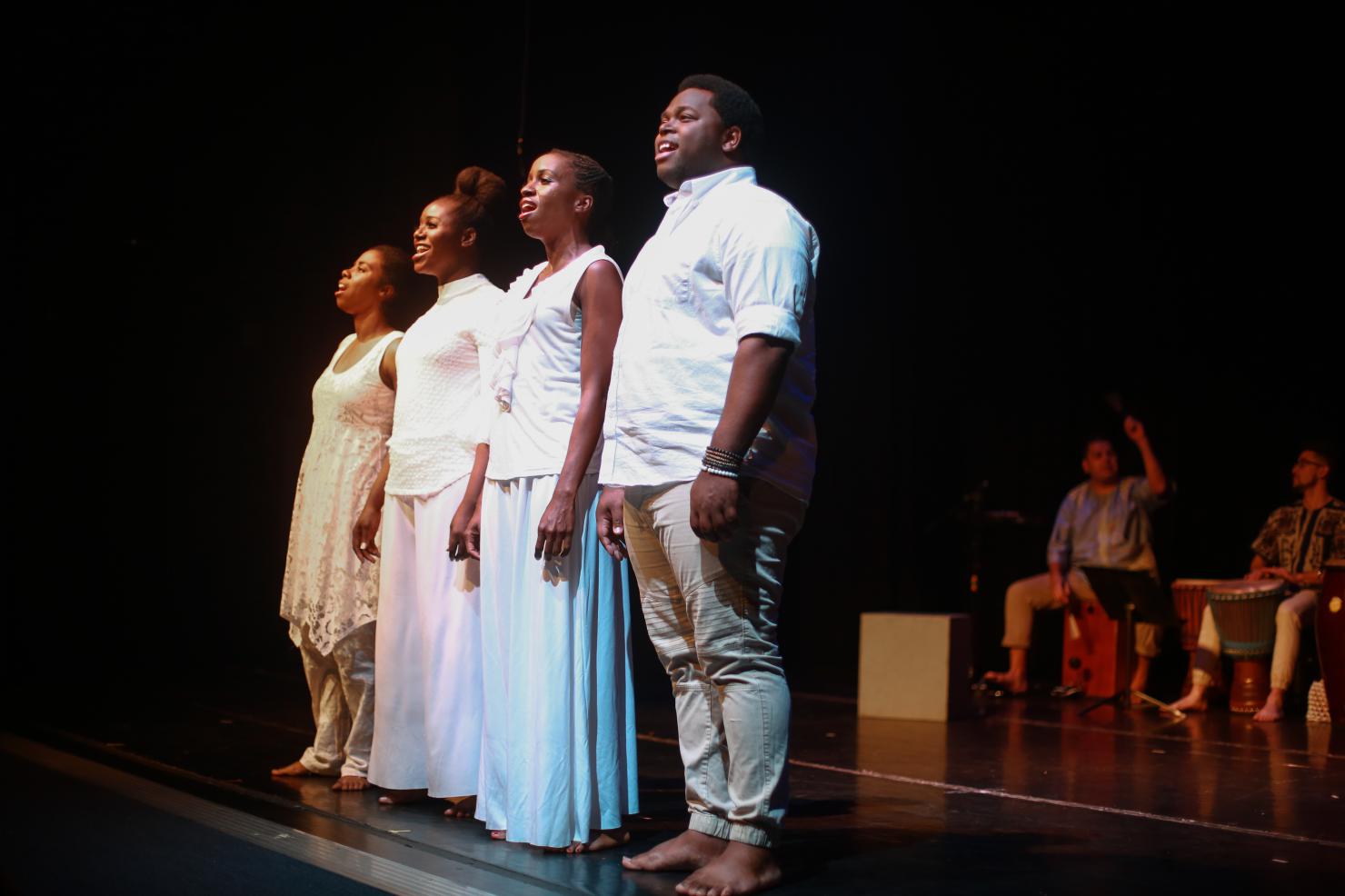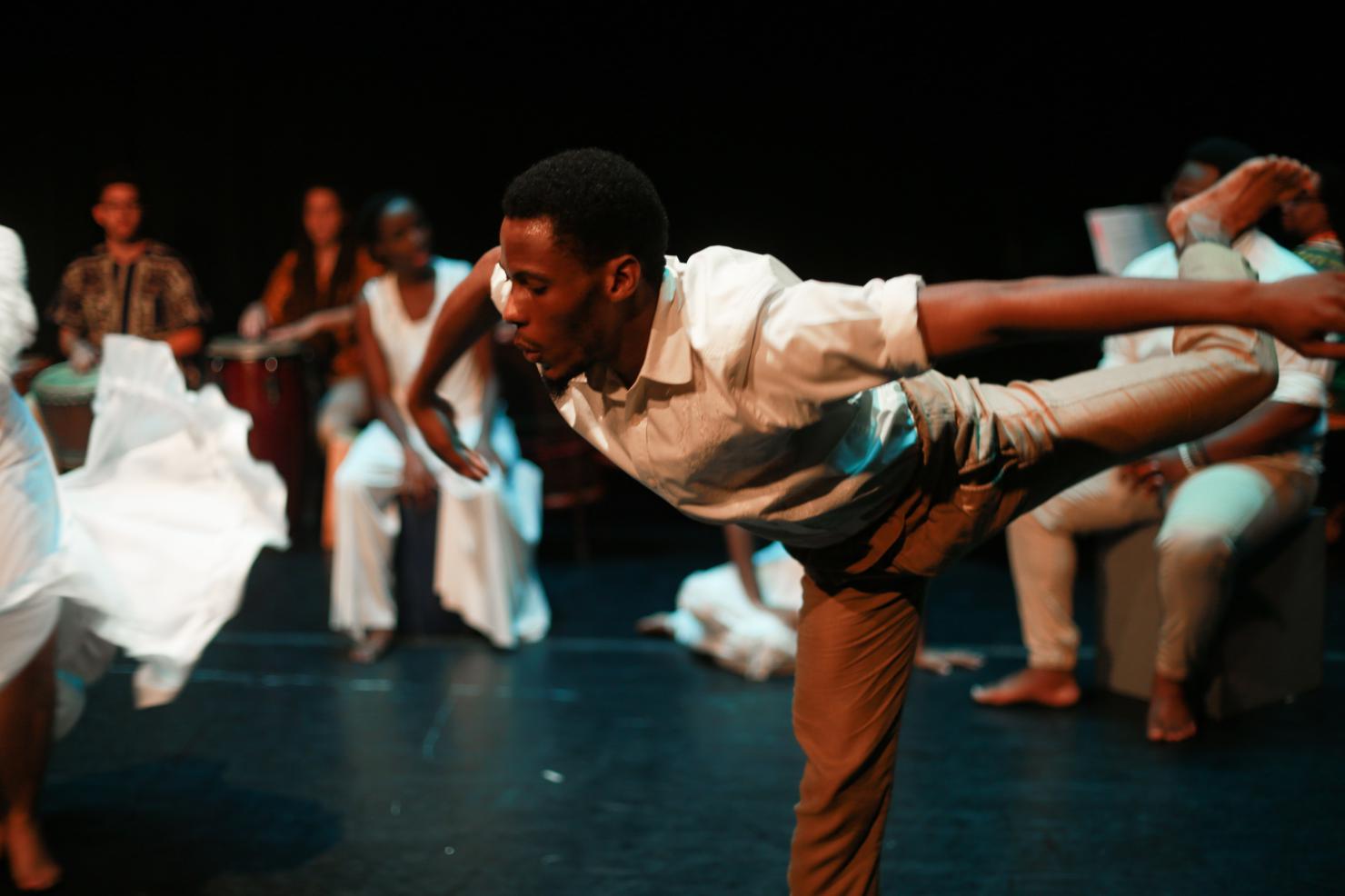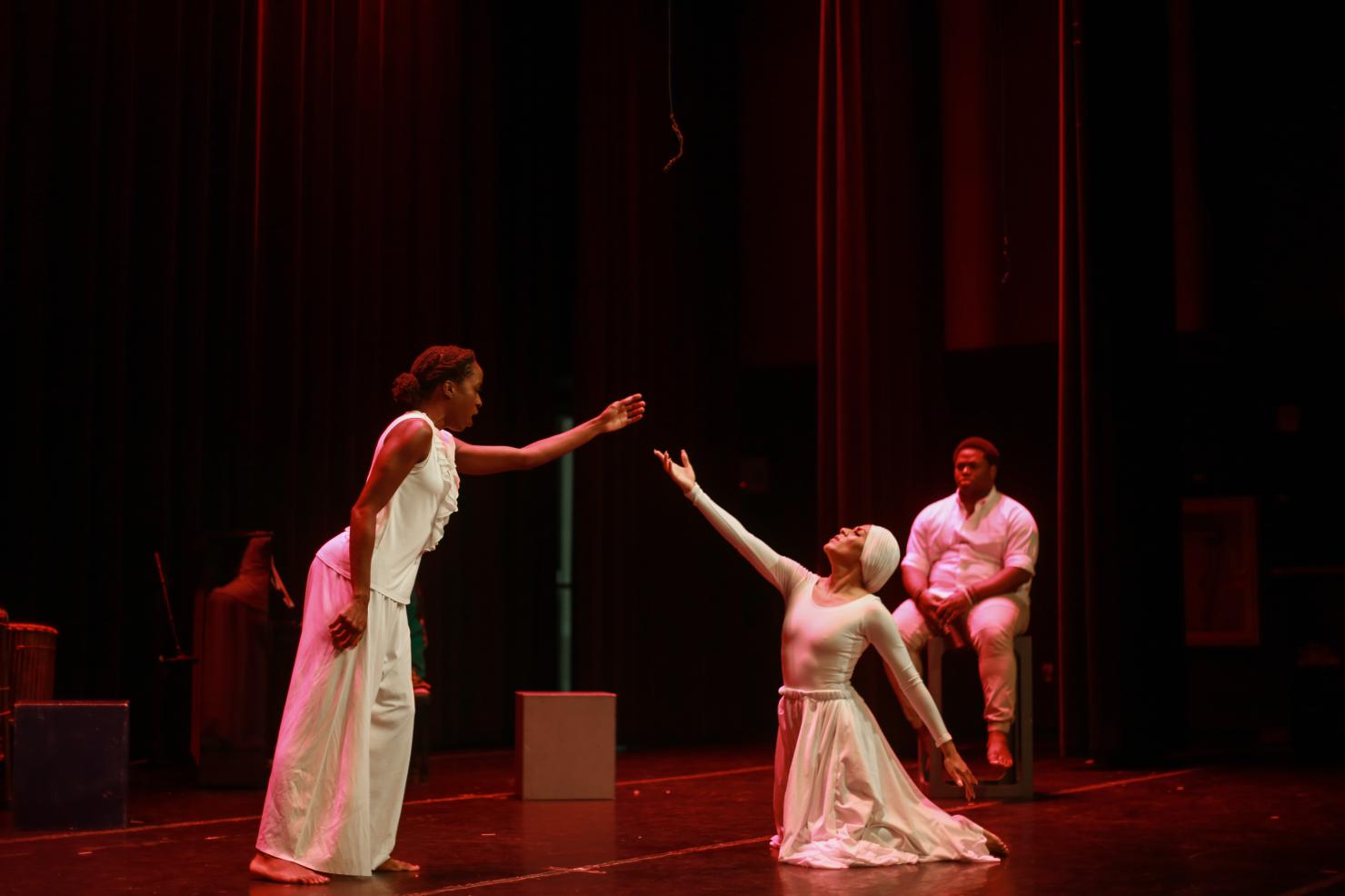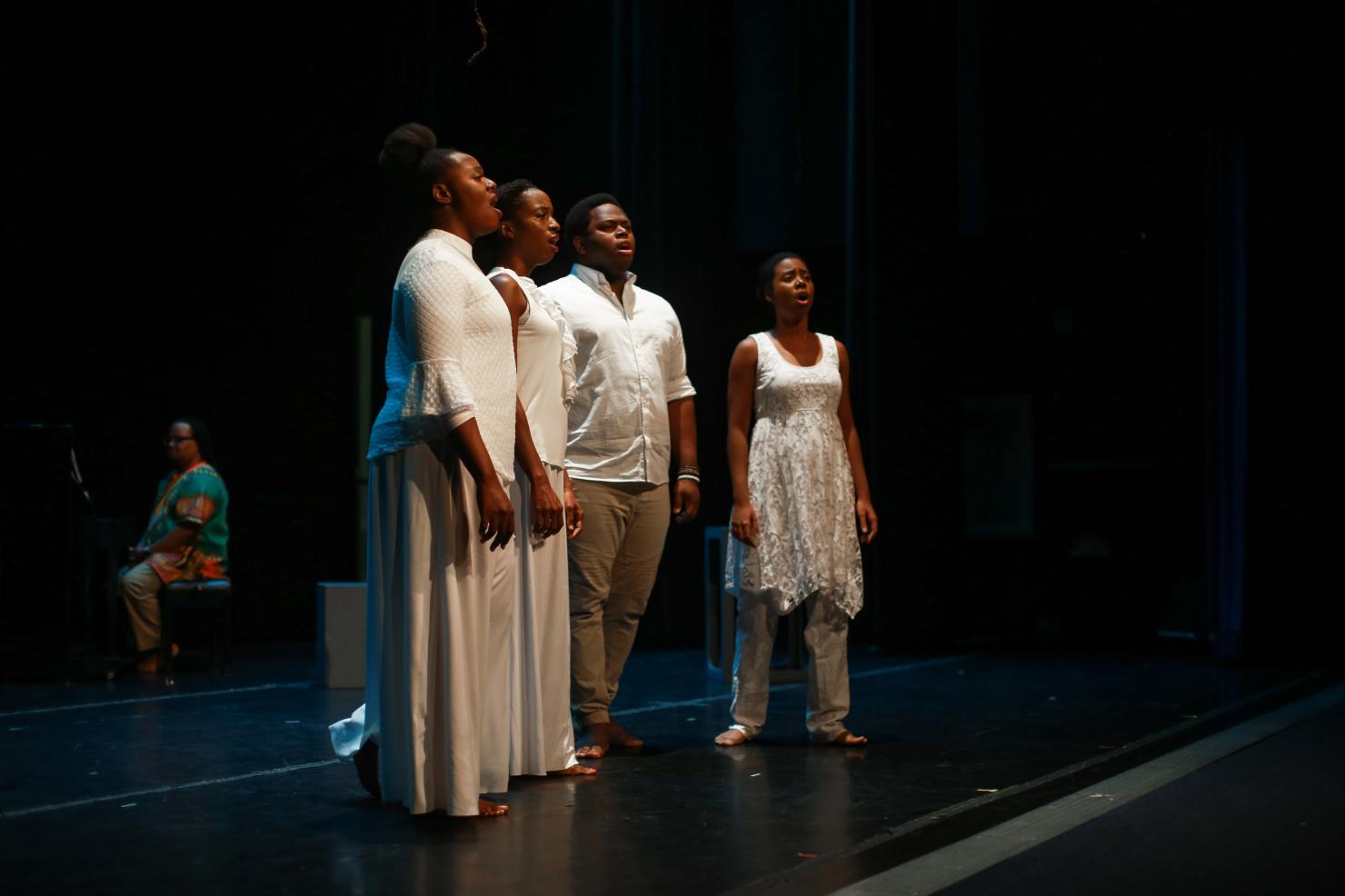
Hued Songs, where traditions collude and collide
ReviewOne of the finest works of music-theatre to hit South Florida in 2019 wasn’t an opera – not exactly. There was no grand set, no philharmonic orchestra hidden below-stage, no star-crossed lovers or scheming villains. Instead, what took shape on stage at Miami’s Little Haiti Cultural Center on December 28 distilled opera to its most essential elements – captivating narrative, raw emotion, exceptional music, and exquisite artistry.
Inhabiting a rare and brilliantly curated balance of opera, theatre, history, worship, and public musicology, Spirituals & Òrìṣàs was presented by Hued Songs, a nascent South Florida performance series “that celebrates and explores black culture through black music, history, and artists,” according to their program notes. “Through song, dance, spoken word, and heart, we seek to immerse audiences in black culture, provoke thought, and to provide a platform where artists of color can be seen, heard, and paid.”

A cast of four singers and three dancers, clad in white, were joined by a trio of drummers and a pianist dressed in colorful prints. Together, and with the guidance of Yoruban Cultural Advisor Olóyè Àìkúlọlá, these artists were listed in the program as griots, referring to the class of historians, poets, storytellers, praise singers, and musicians who maintain the oral history traditions of West Africa.
Contralto Miriam King was an audience favourite, leading some of the show’s most moving moments, including a showstopping “Fix Me Jesus.”
The program was divided into distinct sections, each named after an òrìṣà from the pantheon of spirits recognized by the Yoruba religion. In the section named after Èṣù, the messenger spirit representing crossroads and chaos, the spiritual “Round About the Mountain” took a dark and urgent tone. In the section named after Yemọja, the spirit of creation, motherhood, rivers and lakes, an exuberant rendition of “Come Down Angels” had the audience dancing in their seats.

Throughout the performance, traditions colluded and collided: the vibrant Yoruba songs and dances that were carried across the Atlantic and into the horrors of slavery; and the rich repertory of African-American spirituals that emerged from that legacy. “While so much was stripped away during this era […] the ancestral memory of African traditions are deeply woven into our cultural fabric today and always,” wrote Hued Songs Artistic Director Kunya Rowley in his program notes.
This is where Spirituals & Òrìṣàs spun its genius – in the threads it wove between cultures, histories, trauma and renaissance. The clever interleaving of works from the two traditions painted a vivid and compelling arc, confronting the audience with the darkest currents of a not-so-distant past. “Hued songs are colors lived out loud, unafraid of the consequence of truth,” spoke narrator Darius J. Manuel. “I sing to discover a path I was told could not be mine.”

Yet, Manuel continued, “Hued stories are joy and celebration.” At its core, the performance remained exactly that – a celebration – of artistry, of music, and of resilience. Capturing these themes, the griots excelled. Dancers Erika Loyola, Nicole Machado, and Stephan Saint Louis were mesmerizing under the helm of choreographer Michelle Grant Murray. Manuel’s commanding performance was joined by soprano Kyaunnee Richardson’s glittering vocals and a stunning and emotive turn from soprano Christine Jobson. Contralto Miriam King was an audience favourite, leading some of the show’s most moving moments, including a showstopping “Fix Me Jesus.”
As Hued Songs has proven, the results can only be spectacular.
The griots’ roles were not fixed: singers danced, and dancers sang, all in service of a form of storytelling that was at once operatic in nature, and something entirely new. At the end of the performance, following remarks from Rowley, the audience was invited to stand and join in “Lift Every Voice & Sing.” Having journeyed through the story together, the audience were now a part of it.

With 2020 underway, Hued Songs can only look forward to more exceptional work carving a unique and necessary sphere within the South Florida music scene. Moreover, Spirituals & Òrìṣàs should challenge the region’s longstanding classical music institutions to think innovatively in the new year, to push the boundaries of the art form’s capacity for meaningful storytelling, and to contemplate how they can better welcome, reflect, and amplify the diverse communities they serve. As Hued Songs has proven, the results can only be spectacular.

Comments